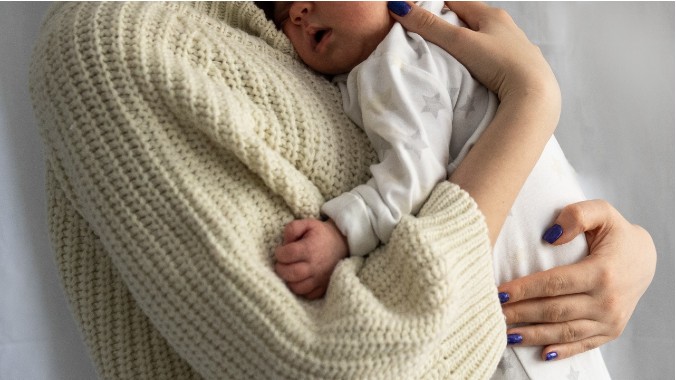The Adoption Industry Exploits Birth Mothers’ Lives—Then Does Nothing to Change Them
The new book Relinquished dispels enduring adoption myths through interviews with birth mothers and over a decade of research.
Shutterstock Books
In 2006, a young woman named Jaime was sexually assaulted and became pregnant—a fact she only learned about in her second trimester. A local crisis pregnancy center helped connect her with a Christian adoption agency, and Jaime, who grew up in an evangelical home, chose an open adoption with Pamela and Rob, a couple who shared her faith. (Open adoptions allow the birth mother to have varying degrees of contact with their child and their child’s adoptive parents, but there are no legal guarantees about what this actually looks like.) Jaime joined the couple’s church shortly after the adoption and, around that time, spoke glowingly of the experience to sociologist Gretchen Sisson. But a decade later, her outlook had changed entirely: As her political and religious views shifted, a significant rift had formed in Jaime’s relationships with Pamela and Rob, and she clashed with the couple over the appointment of Brett Kavanaugh to the Supreme Court in 2018. “Your sexual assault has nothing to do with any of this,” Jaime recounted Pamela telling her at the time, after Jaime posted on Facebook about opposing Kavanaugh’s Supreme Court nomination and disclosed her own assault.
Like nearly all of the birth mothers Sisson interviewed for her new book, Relinquished: The Politics of Adoption and the Privilege of American Motherhood (in some cases, twice, 10 years apart), Jaime’s feelings about the adoption had changed over time, after having space to reflect on the circumstances that had prompted them to seek adoption. Some of the birth mothers Sisson interviewed were exiting abusive relationships, homeless, impoverished, or struggling to care for kids they already had. Some of the mothers were young white women whose families declined to help them raise biracial babies. All were drawn to the allure of what wealthy, prospective adoptive parents could offer their children that birth mothers knew they couldn’t. That is, ultimately, what Sisson’s book centers upon: the fundamental economic imbalances that drive the U.S. adoption industry and fuel “the domestic supply of infants” (a gross term Supreme Court Justice Samuel Alito used in a footnote in his Dobbs v. Jackson Women’s Health opinion).
Sisson synthesizes over a decade of research and longitudinal interviews with birth mothers to lay out an extensive history of adoption in the U.S.—which has deep roots in racial capitalism and the state policing of pregnancy and parenting—and to dispel enduring myths about adoption. In a conversation with Jezebel, Sisson said she was especially compelled to write a book about the adoption industry’s impacts on birth mothers because “the Congressional adoption caucus is the largest bipartisan caucus in the United States.” That is, the one thing anti-abortion and pro-abortion rights politicians seem to sweepingly agree on is that adoption is a moral good that can be propped up as an alternative to abortion. However, Sisson points out that this is a false assumption: In her book, she cites surveys that show there’s almost no overlap between people who seek abortion and people who seek adoption. People who sought abortion did not want to be pregnant, period; people who sought adoption often wanted to parent, but simply didn’t have the means. Adoption and abortion are entirely separate outcomes, Sisson argues, but the “perpetual error” that politicians make is lumping the two together.

Courtesy of Gretchen Sisson
Birth mothers’ experiences often follow the same path, Sisson finds. They want to parent, but don’t have the resources. Later, their accepting (or even positive) feelings about the adoption sour over time, as they reckon with the trauma incurred from being separated from their newborn. She points out that, as a culture, we rarely hear about the coercive or dishonest tactics deployed by some adoption agencies; the psychological impacts of adoption on birth mothers; or their continued economic struggles that the billion-dollar adoption industry does nothing to address.
-

-

-

-

-

-

-

-

-

-

-

-

-

-

-

-

-

-

-

-

-

-

-

-

-

-

-

-

-

-

-

-

-

-

-

-

-

-

-

-









































